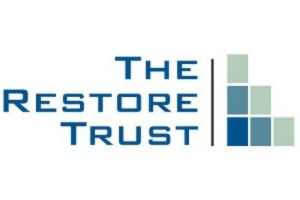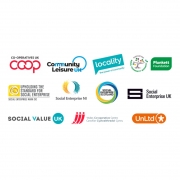Lobbying government for improved access to financial support (Part 2)
Throughout the Covid crisis, we have been working with our partners across the social sector to ensure that appropriate support packages are available to get social businesses through this crisis.
As part of this work, our Managing Director Lucy Findlay has taken a lead for the New Economy Alliance on tackling issues that many social businesses are having in accessing the government’s emergency finance measures, which the BBC recently reported on.
Social businesses shut out of government support https://t.co/v5aZLstkIb
— BBC Business (@BBCBusiness) February 15, 2021
 The BBC report features the The Restore Trust in Bristol, which is one of many social enterprises that has faced long delays getting necessary support. They explained that they had “tried every lender on the government’s list… none of them would let us open a new account and get a bounce-back loan.”
The BBC report features the The Restore Trust in Bristol, which is one of many social enterprises that has faced long delays getting necessary support. They explained that they had “tried every lender on the government’s list… none of them would let us open a new account and get a bounce-back loan.”
The social sector has been raising awareness of these issues for several months and it is now absolutely vital that these are addressed by government, to enable social businesses, which are playing a crucial role for our communities in this pandemic, to continue their important work for the long-term. The latest research from the social sector shows that Covid-related uncertainty, trading income and other funding/finance are the leading concerns for social entrepreneurs in the year ahead.
Back in the autumn, we collected feedback from the social sector, which showed there were some fundamental gaps and challenges in accessing the vital financial support being offered by the government. In particular, there were clear obstacles to social businesses trying to navigate the government emergency loan schemes – Bounce Back Loans (BBLs) and Coronavirus Business Interruption Loans (CBILs).
As we reported in a recent news post, consistent anecdotal evidence from social enterprises, co-operatives and community businesses showed us that there are two key obstacles blocking access to government-backed loans:
- Many ethical and social banks that social enterprises bank with are not approved to provide Bounce Back Loans
- Social enterprises are not able to open new accounts with participating banks, with waiting times to open new accounts often being several months
In January, we wrote a letter to Minister John Glen (Economic Secretary to the Treasury), raising our concerns that many vital services are in danger of being lost unless access to emergency finance is improved. We were disappointed to receive a response which, although sympathetic to the plight of social enterprises, basically demonstrated that the government is unwilling to intervene in what they see as operational matters which are under the “commercial discretion” of the banks involved.
We plan to respond to the Minister, proposing solutions to the problems he acknowledged in his letter. We propose the following actions, which can be made to Government-backed emergency loan schemes to make them work quicker, better and more inclusively:
- The Treasury should explore every avenue to encourage more banks to become lenders of Government-backed emergency loans, especially the ethical banks popular amongst social entrepreneurs. If banks can’t take on new customers during lockdown periods when many businesses are being hit hardest, we need to extend the emergency loan scheme to more banks.
- The government should set-up a separate emergency loan/investment fund, or section out a specific ‘pot’ within the overall loan scheme, tailored to our sector, provided by lenders with sector-expertise.
- A central helpline should be set up to support social enterprises that are unable to communicate directly with banks to troubleshoot any issues. Reports of common issues and barriers should be reported to both government and the banking sector with a requirement to act on these.
The measures announced earlier this month to extend repayment periods for the loans shows that the government can still deliver improvements to the schemes and we hope they will take this opportunity to address the issue of access to financial support.
We’re committed to ensuring fair access to government support for all businesses, including social enterprises, many of which are currently missing out on vital emergency finance. Along with our partners, we will continue to push for action until these issues are resolved.





